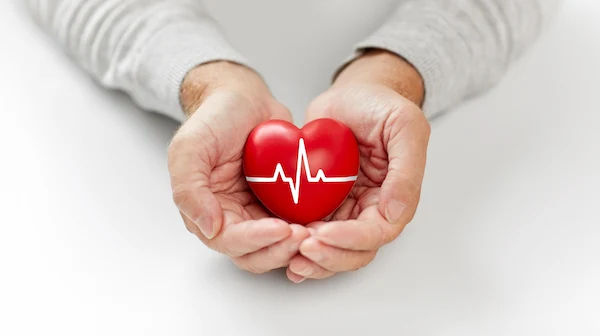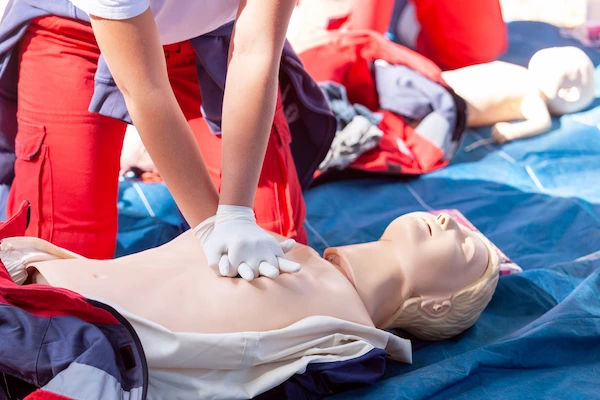- Female
- 25 Years
- 29/01/2025
I've been experiencing this odd pin-pricking sensation on the left side of my chest for the past couple of days. It's happening now and then, not consistently. I remember having similar pain about three years ago, but it went away on its own back then. Should I be worried this time? What might be causing this sensation?
Answered by 1 Apollo Doctors
pin-pricking sensation in the left side of the chest can be unsettling. Given that you've experienced similar pain 3 years ago, which resolved on its own, it's essential to take this incident seriously and explore possible explanations.
Possible Causes
- Costochondritis: Inflammation of the cartilage that connects the ribs to the breastbone can cause sharp, stabbing pains.
- Musculoskeletal issues: Strained or pulled muscles in the chest wall can lead to pin-pricking sensations.
- Gastrointestinal issues: Gastroesophageal reflux disease (GERD), acid reflux, or stomach ulcers can cause chest pain.
- Cardiovascular concerns: Although less likely, it's essential to rule out cardiovascular issues, such as angina or pericarditis.
What to Do Next
- Consult a doctor: Schedule an appointment with your primary care physician to discuss your symptoms.
- Monitor your symptoms: Keep a journal to track when the pin-pricking sensation occurs, how long it lasts, and any potential triggers.
- Avoid heavy lifting or strenuous activities: Until you've consulted with your doctor, avoid any activities that may exacerbate the discomfort.
If you experience any of the following, seek immediate medical attention:
- Severe chest pain or pressure
- Difficulty breathing
- Dizziness or fainting
- Pain radiating to your arms, back, or jaw
Dr. Shubham Suggests...
Consult a Cardiologist
Answered 04/07/2025
0
0

More Cardiology Health Queries
View allI'm 32 and just got my TMT test results back. It mentions VPC during exercise and after, and a positive chronotropic response. There's also a 1mm downsloping ST depression at peak exercise but it's normal at 3 min recovery. Should I be worried about any of this? Do I need to take any medication? I'd really appreciate some guidance.
TMT report suggests a negative TMT with VPC seen during exercise and at recovery of the test, along with a positive chronotropic response. The 1mm downsloping ST depression at the peak of exercise, which normalizes at 3 minutes of recovery, is also noted. Based on this report, there is no significant worrying problem identified. However, considering the findings, it would be advisable to start medication to manage the VPC and ST depression. You can take Metoprolol (brand name: Lopressor) 25mg once daily to help regulate your heart rate and reduce the occurrence of VPCs. Additionally, you can take Aspirin 75mg once daily to prevent any potential clot formation due to the ST depression observed during exercise. It is important to follow up with your healthcare provider for further evaluation and management.
Answered by 1 Apollo Doctors
I've been taking Pentids 400 regularly for my cardiovascular issues, but now I can't seem to find it at my local pharmacy. Is there any alternative medication I could use instead?
Pentids 400 is not available, you can consider using the alternative medicine Amoxicillin 500mg. It belongs to the same class of antibiotics as Pentids and can be used to treat similar cardiovascular issues. Make sure to follow the dosage instructions provided by your healthcare provider.
Answered by 1 Apollo Doctors
I'm really concerned about my blood work. Am I at risk for a cardiac arrest at any moment? My lipoprotein A is 53 mgdl, HS CRP is 4.3 mgL, total cholesterol is 222 mgdl, triglycerides are 212 mgdl, VLDL cholesterol is 42.48 mgdl, and non-HDL cholesterol is 172.2 mgdl. My TSH is 6.93, and I also have hypertension. Are these numbers something to be really worried about?
Your Lipoprotein A level is 53mgdl, HS-CRP is 4.3mgL, Total Cholesterol is 222 mgdl, Triglycerides are 212 mgdl, VLDL Cholesterol is 42.48 mgdl, NON HDL Cholesterol is 172.2 mgdl, and TSH is 6.93. These values indicate a higher risk for cardiovascular issues. To manage your cholesterol levels and reduce the risk of cardiac events, I recommend starting a statin medication such as Atorvastatin 20mg once daily. Additionally, for hypertension, you can take Amlodipine 5mg once daily. It is important to follow up with regular check-ups and lifestyle modifications to improve your overall cardiovascular health."
Answered by 1 Apollo Doctors
Disclaimer: Answers on Apollo 247 are not intended to replace your doctor advice. Always seek help of a professional doctor in case of an medical emergency or ailment.




_4.webp)